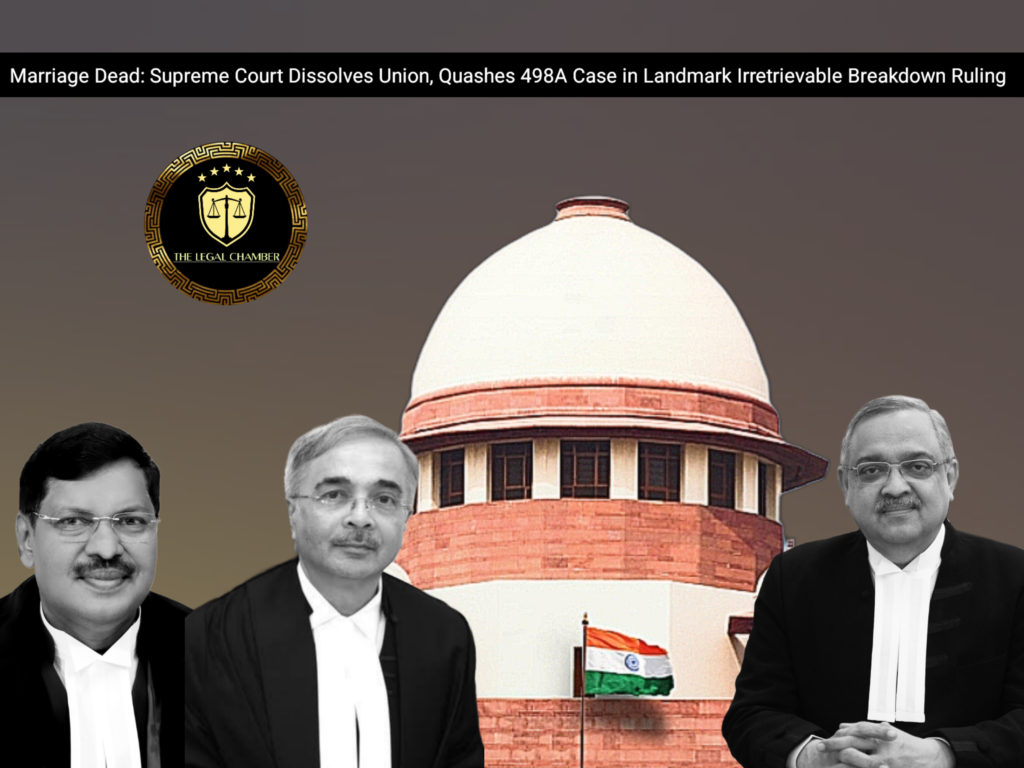
The Supreme Court, invoking its extraordinary power under Article 142 of the Constitution, dissolved the marriage on the ground of irretrievable breakdown. It quashed the pending criminal proceedings under Section 498-A IPC, finding the allegations to be vague and arising from marital discord, while upholding the terms of a settlement agreement for a clean break.
Facts Of The Case:
The marriage between Anurag Goel (appellant-husband) and the second respondent (wife) took place on July 25, 2015, following prior divorces for both. After approximately one year and nine months of conjugal life, the relationship soured. The husband alleged constant harassment, leading him to abandon the matrimonial home—a Mumbai apartment he owned—in April 2017 to move to Faridabad with his autistic child from his first marriage. The wife, however, claimed she was a victim of domestic violence and was abandoned without any means of survival, forcing her to bring her parents to live in the flat. This led to a flurry of litigation, including a complaint under Section 498-A of the IPC by the wife in 2018 and a divorce petition filed by the husband. During mediation in 2022, the parties reached a settlement where the husband agreed to gift the Mumbai apartment to the wife in exchange for mutual consent divorce and the withdrawal of all cases. However, the wife resiled from this agreement before the second motion for divorce, demanding significantly higher alimony, which prompted the husband to approach the Supreme Court.
Procedural History:
The procedural history of this case commenced with the wife filing a criminal complaint under Section 498-A IPC, leading to the registration of FIR No. 63 of 2018 before the Metropolitan Magistrate in Mumbai. The husband subsequently approached the Bombay High Court under Section 482 CrPC seeking to quash these proceedings, a plea that was dismissed. Concurrently, the husband filed for divorce in a Delhi family court, where mediation resulted in a settlement agreement. When the wife resiled from this settlement, the husband initiated contempt proceedings in the Delhi High Court. A Single Judge found her in contempt, but this was overturned by a Division Bench. The husband then appealed the Bombay High Court’s order to the Supreme Court, while also filing a separate application under Article 142 of the Constitution seeking a divorce on the ground of irretrievable breakdown of marriage. The Supreme Court clubbed these matters and passed the final judgment.
READ ALSO :Supreme Court Rules Property Can Be Returned During Insolvency If Not Needed
Court Observation:
Download The Judgement Here